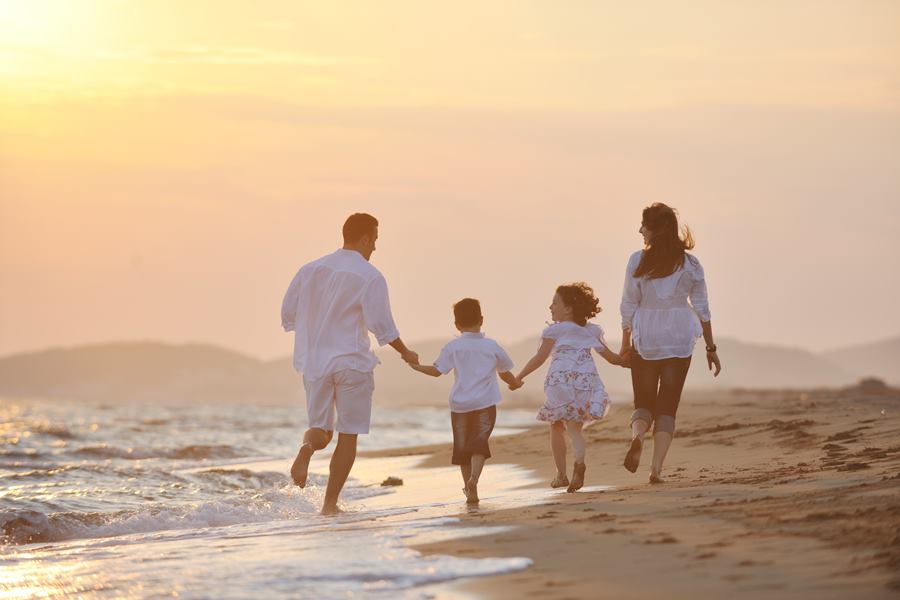Daily Busan
How Busan became a model city for raising children

In recent years, Busan Metropolitan City has taken decisive steps to ensure the health and happiness of its youngest citizens. Domestic and international organizations are taking notice.
The 2024 Child Well-Being Index, a study by Save the Children and the Institute of Social Welfare of Seoul National University, found that Busan children had the highest quality of life overall compared to children in other cities.
Busan outperformed national averages in eight categories, and recorded the highest scores in health, children's relationships and residential environment.
The achievement came five years after Busan became the first metropolis in Korea to be officially recognized as a UNICEF Child-Friendly City.
This certification is awarded to cities that protect and advance children's rights through policies and programs based on the U.N. Convention on the Rights of the Child.
🍀Family-focused policies
Support for children and their families is a top priority under the mayoral administration. Since 2022, City Hall has implemented several policies to ensure parents have the means and support to raise children.
One flagship initiative is the "Aeji-jungji" program. Launched in January 2024 in partnership with the Busan Office of Education, Aeji-jungji is the nation's first integrated "edu-care" system, which expands and enhances public education and childcare.
Services include specialized care for infants under 18 months, at-home part-time care and extended operating hours at daycare centers and kindergartens. Emergency childcare is also available during nights and holidays. In addition, when children are hospitalized, caregivers can be dispatched to treatment centers to provide support in place of guardians.
Busan also has various programs to help ease the financial burden of raising children. The city provides up to 100,000 won per month to children at daycare facilities to help pay for extracurricular activities and field trips.
Multi-child families can also receive 300,000 to 500,000 won to support education fees through the Dongbaek Jeon local payment system.
In addition, City Hall is revising ordinances to include services for international residents to ensure all children are supported.
🍀A space for kids to learn and play
In response to the growing trend of "no-kids zones," Busan has introduced "welcome kids zones" across the city. These thoughtfully designed, family-friendly spaces offer fun outings for all ages.
Central to this response is Deullak Nallak, a network of children's complexes that offer cultural, digital and educational play-based learning opportunities.
There are 79 Deullak Nallak centers operational citywide, with another 26 under construction. Busan expects to open 200 in total by 2026.
A key pillar of Busan's 15-minute city project, the award-winning Deullak Nallak complexes are conveniently located in public spaces like libraries, cultural centers and community service facilities.
Each complex features a mix of media exhibitions, digital experiences, reading areas and indoor playgrounds. Children can explore technology, engage with native-English speakers and enjoy active play in specially equipped areas.
🍀Young journalists to cover Busan
Busan also empowers children to share their perspectives through journalism. The "Busan City Children Reporters," a group of around 200 elementary students in grades 4 to 6, will begin field reporting in May.
These young reporters will cover local events, festivals, performances and exhibitions, developing media literacy and writing skills along the way. Their work will be published on the city's kids website, and outstanding articles will appear in the print edition of Busan Children's Newspaper, launching in June.
<Today's Vocabulary - 오늘의 단어>
decisive: 결정적인 outperform: 능가하다 residential: 거주하기 좋은 achievement: 성과 right: 권리 implement: 시행하다 extended: 연장된 dispatch: 인력을 배치하다 extracurricular: 정규 교과 외 pillar: 기둥 literacy: 문해력 outstanding: 뛰어난
Editor: Song Soomi
Copy Editors: Ryu Hyoseung, Anton J. Mapoy

